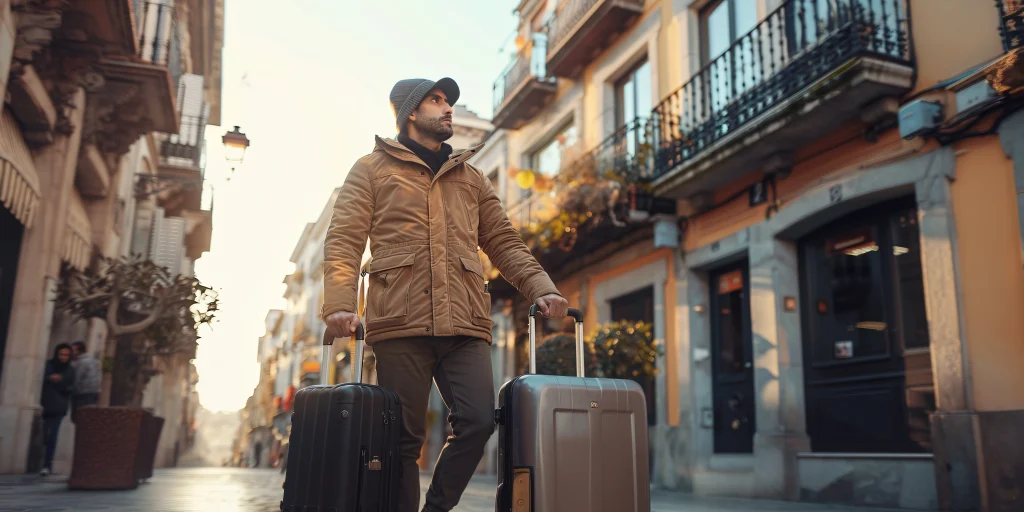Portugal’s charm is undeniable—think sun-drenched coastlines, historic cobblestone streets, and a relaxed pace of life that’s hard to resist. For many, it’s more than a vacation spot; it’s a place to call home. The Portugal D7 Visa offers a straightforward way to make that happen, especially if you’ve got a steady income that doesn’t tie you to a 9-to-5 job. Designed for retirees, remote workers, and investors, this visa opens the door to European residency without the complexity of traditional work permits. Let’s break down how it works, who it’s for, and what you need to know to get started in 2025.
What is the D7 Visa?
The D7 Visa, officially a Passive Income Visa, lets you live in Portugal if you can prove a reliable income from sources like pensions, investments, or rental properties. Unlike the Golden Visa (which requires a big investment), the D7 is more accessible, focusing on financial stability rather than upfront cash. The minimum income requirement is tied to Portugal’s minimum wage—around €8,460 per year for a single applicant, or roughly €705 monthly. Add 50% more for a spouse and 30% per child if you’re bringing family. It’s not a fortune, especially compared to other European countries, making it a practical option for many.
Once approved, you get a residence permit, renewable every two years. After five years, you can apply for permanent residency—or even citizenship if you learn basic Portuguese (A2 level). The perk? As a resident, you can travel visa-free across the Schengen Area, soaking in Europe’s diversity without border hassles.

Who Qualifies?
The D7 is built for flexibility. Retirees with a pension are a natural fit—Portugal’s warm climate and low cost of living (outside Lisbon) are big draws. Remote workers earning from freelance gigs or online businesses qualify too, as long as the income’s passive (not tied to a Portuguese employer). Investors with dividends, royalties, or rental income also make the cut. The key is consistency—Portugal wants proof you won’t need local welfare, so bank statements, tax returns, or contracts are your golden tickets.
There’s no age limit, and you don’t need to buy property (though renting or owning helps your application). You will, however, need private health insurance and a clean criminal record. It’s a low bar compared to work-based visas, but the paperwork still requires attention.
The Application Process
Applying starts wherever you are. Head to your local Portuguese consulate with your documents: proof of income, a lease or property deed, health insurance, and a passport. You’ll also need a “motivation letter” explaining why Portugal’s your choice—keep it simple, like wanting to enjoy its culture or climate. Processing takes 2-4 months, depending on your consulate’s backlog. Once approved, you get a temporary visa to enter Portugal, where you’ll swap it for a residence card at the SEF (Immigration and Borders Service).
Here’s a tip: start early. Gathering financial records can take time, especially if your income’s from multiple sources. And don’t skip the housing step—consulates want to see you’ve got a base, even if it’s just a six-month lease.
Costs and Timeline
The D7 is budget-friendly by European standards. Visa fees are around €90, plus €80 for the residence card. Health insurance might run €300-€500 annually, depending on coverage. Living costs vary—Lisbon’s pricier (rent around €1,000/month for a one-bedroom), while smaller towns like Coimbra or Faro hover closer to €600. Your income needs to cover this, so plan accordingly. The whole process, from application to arrival, typically spans 3-6 months.
Settling In: What to Expect
Portugal’s welcoming, especially to expats—English is common in cities, and the locals are patient with newcomers. You’ll need to spend at least six months a year there to maintain residency, which isn’t hard given the lifestyle. Think affordable seafood, vibrant festivals, and a climate that rarely dips below mild. Healthcare’s solid too, with a mix of public and private options tied to your insurance.
Adjusting takes time. Bureaucracy can be slow—think long waits at SEF offices—and rural areas might challenge your Portuguese skills. But the trade-off is a slower, richer life, whether you’re sipping coffee in Porto or hiking the Algarve’s cliffs.

Challenges to Watch For
It’s not perfect. Income verification can trip up applicants if records aren’t clear or consistent. Currency fluctuations might squeeze your budget if your money’s not in euros. And while Portugal’s safe and stable, its economy leans on tourism, so seasonal shifts could affect local vibes. For families, finding international schools outside Lisbon or Porto takes effort—something to research if kids are in tow.
Why Portugal?
The D7 isn’t just a visa; it’s a lifestyle choice. Portugal blends affordability with European access, offering a balance few countries match. It’s less hectic than Spain, cheaper than France, and sunnier than the UK. If you’re dreaming of a European base without breaking the bank, this could be it. Curious about making the move? Get in touch with us.


